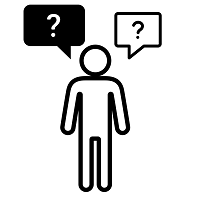Reliability: Who hosts the website and what is the website’s purpose?
When you find information relating to the law online, you should consider how reliable the information is, how current the information is, and what type of information the website provides.
To help you figure out how reliable the information is, start by asking yourself two questions:
-
Who hosts the website? (Basically, who decides its content.)
-
What is the website’s purpose?

If the website is “hosted” by the State of Iowa or the federal government, this is a good sign that this is a reliable source of information. An example of a website hosted by the Iowa government is the Iowa Legislature Website, which is a great source of information on Iowa law. In Iowa, a good way to tell whether the state is hosting the website is to look at the last part of the web address. If the website is hosted by the state of Iowa, it will likely end in “iowa.gov.”
Websites hosted by the United States government will end in “.gov.” An example of this is the website govinfo.gov, which gives access to a wide variety of federal government information.
The ending of a web address can often (but not always!) be a good indicator of the purpose of the website. We already covered “.gov,” but you likely also see “.com,” “.org,” and “.edu” regularly as well. In general, “.com” is a company website, “.org” is a nonprofit organization’s website, and “.edu” is a college or university website. Just because a website has a “.com” address ending doesn’t mean the information on it is bad or unreliable.
Keeping the web address in mind, next consider the purpose of the website. A website’s purpose might be to persuade you – for example, a campaign website for someone running for Congress. It may also be to sell you something (like a business website). Or it might be to offer a public service, like making the law more accessible to the public. This website is one example of a website meant to make the law more accessible to the public, but you’ll find others, like the Legal Information Institute.
If a website’s purpose is to persuade you or to sell you something, keep in mind that it could give incomplete information.
Other aspects of the website may make you decide the website is unreliable. Does the website have lots of misspellings and typos? Does the website have lots of pop-up ads?
If you can’t figure out whether a website is providing you with reliable information, consider reaching out to a librarian to ask for help.
